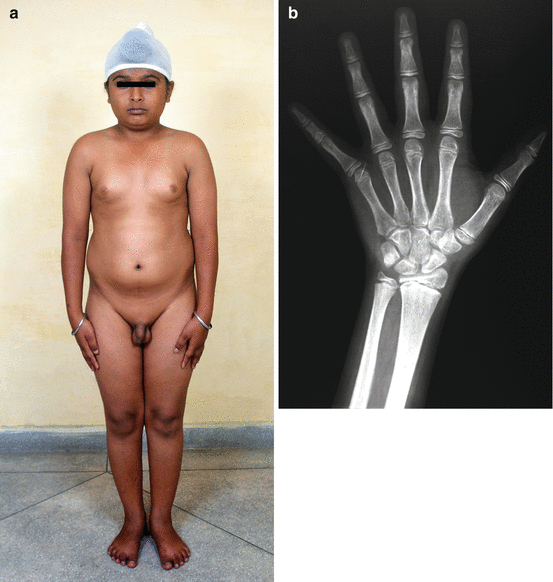Puberty is a crucial developmental phase during which boys undergo significant physical and hormonal changes, typically beginning between ages 9 and 14. When these changes have not started by age 14, it is classified as delayed male puberty. While often a variation of normal growth, delayed puberty can sometimes indicate an underlying medical issue that requires attention.

Causes of Delayed Puberty in Boys
Several factors can contribute to delayed puberty in males:
1. Constitutional Growth Delay
This is the most common cause of delayed puberty, often referred to as being a “late bloomer.” Boys with this condition are generally healthy but develop later than their peers. This pattern frequently runs in families, and puberty typically occurs without medical intervention.
2. Chronic Medical Conditions
Certain health disorders can interfere with growth and puberty, including:
- Chronic kidney disease
- Celiac disease
- Inflammatory bowel disease (IBD)
- Diabetes mellitus
- Cystic fibrosis
These conditions affect overall health and nutritional status, which can, in turn, delay pubertal development.
3. Hormonal Disorders
Hormone imbalances caused by conditions such as hypothyroidism or hypogonadotropic hypogonadism can disrupt the normal onset of puberty. Disorders affecting the pituitary gland or hypothalamus may also impair the production of necessary hormones like luteinizing hormone (LH) and follicle-stimulating hormone (FSH).
4. Genetic Syndromes
Certain genetic conditions can lead to delayed puberty, including:
- Klinefelter Syndrome – A condition where males have an extra X chromosome, affecting testicular function.
- Kallmann Syndrome – A rare disorder that affects the production of gonadotropin-releasing hormone (GnRH), leading to absent or delayed puberty.
5. Excessive Exercise or Low Body Fat
Boys who engage in intense physical training, such as gymnasts, swimmers, or long-distance runners, may experience delayed puberty due to reduced body fat and altered hormone levels. Malnutrition or eating disorders can also play a role.
Recognizing the Symptoms of Delayed Puberty
Parents and healthcare providers should be aware of the following signs that may indicate delayed puberty:
- Lack of testicular enlargement by age 14
- Minimal or absent pubic hair growth
- Failure to experience a significant growth spurt
- No deepening of the voice or muscle development
- Psychological distress due to delayed maturation compared to peers
Diagnostic Approaches
1. Medical History and Physical Examination
A thorough assessment includes evaluating family history, growth patterns, and overall health.
2. Bone Age Assessment
An X-ray of the left hand and wrist can determine if skeletal development aligns with chronological age. Delayed bone age often correlates with delayed puberty.
3. Hormonal Testing
Blood tests measuring testosterone, LH, FSH, and thyroid hormones help identify whether the delay is due to hormonal deficiencies.
4. Imaging Studies
In cases where structural abnormalities are suspected, an MRI of the brain may be performed to examine the hypothalamus and pituitary gland.
Treatment Options for Delayed Male Puberty
1. Observation and Reassurance
For constitutional growth delay, no treatment may be necessary, as puberty will eventually occur naturally. Regular monitoring ensures that normal development progresses.
2. Hormone Therapy
For boys with significant delay, short-term testosterone therapy may be recommended. This involves administering low doses of testosterone via injections or patches to stimulate pubertal development.
3. Treating Underlying Conditions
If a medical condition is responsible for the delay, appropriate treatment—such as hormone replacement for hypothyroidism or nutritional therapy for malnutrition—can help initiate puberty.
The Role of the Hypothalamic-Pituitary-Gonadal (HPG) Axis
Puberty is regulated by the hypothalamic-pituitary-gonadal (HPG) axis, a system responsible for hormone production and sexual development. Disruptions in this feedback loop can lead to delayed puberty.
mermaidCopyEditgraph TD
H[Hypothalamus] -->|Releases GnRH| P[Pituitary Gland]
P -->|Secretes LH & FSH| T[Testes]
T -->|Produces Testosterone| B[Body]
B -->|Initiates Puberty| H
The hypothalamus releases gonadotropin-releasing hormone (GnRH), which stimulates the pituitary gland to produce LH and FSH. These hormones signal the testes to produce testosterone, which drives pubertal changes. Any disruption in this pathway can result in delayed puberty.
Psychological and Emotional Impact
Delayed puberty can affect a boy’s self-esteem and social development, leading to anxiety or depression. Open communication, support from parents and peers, and professional counseling can help boys navigate these challenges.